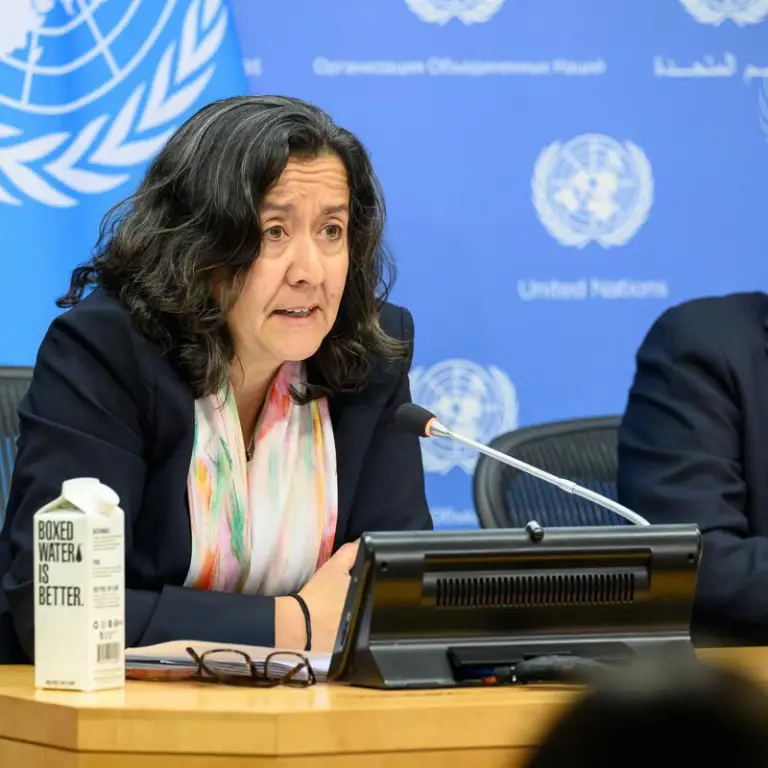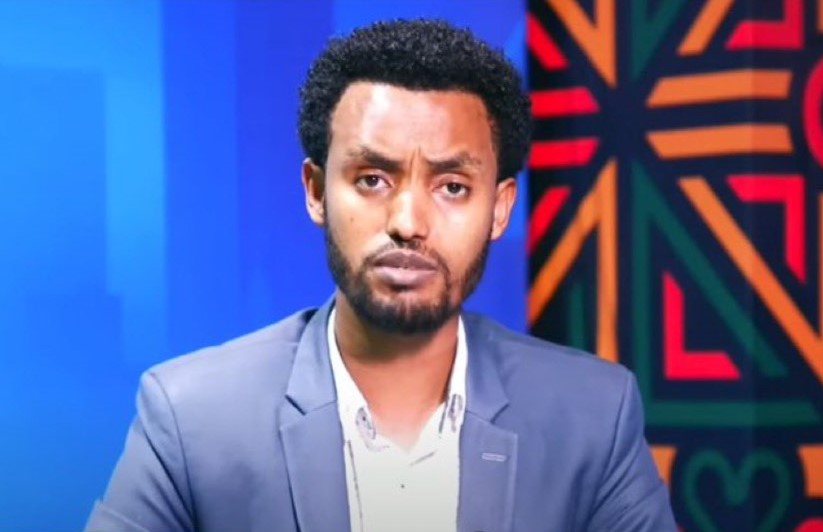BY TESFA-ALEM TEKLE
Rebuilding schools and hospitals is the “number one priority” in Ethiopia’s northern Tigray region after two years of brutal conflict, Janti Soeripto, head of the US-based charity Save the Children said after she paid a visit to Tigray this week.
Four months since the federal government and the Tigray People’s Liberation Front (TPLF) signed a peace deal, medicine and food supplies were still insufficient, Soeripto said after a trip to the Tigray region, which remained largely cut off from the world during the fighting marked by numerous atrocities including sexual assaults and mass killings.
Speaking to AFP, the charity official, who has seen the situation firsthand, said “Physical infrastructures need to be rebuilt…a lot of it was literally destroyed. I have seen pictures of healthcare facilities that were completely ripped apart, completely. Not only were things taken, but X-ray machines were smashed, all the equipment was taken, fridges are gone, the building is completely unusable”
Soeripto went on, saying “So physical infrastructures, rebuilding of schools and healthcare facilities: absolutely number one priority.”
She added “But then there’s the stuff that is invisible… how do we make sure they get access to the mental health and psychosocial support they need?’
Addressing Tigray’s needs, she said “I’m sure supplies are not completely fulfilled but in the cities you certainly see that resumption, which is good, but as I said, if 80 to 90 percent of the healthcare infrastructure and schools are damaged or completely destroyed, that is problematic.”
Soeripto also said “The fact that teachers and doctors are still unpaid prevents the resumption of that kind of public service that I think we need in order to really get back to normal, so to speak.”
Among the challenges to be overcome are the “long time to get the right level of medicine in that we need… we’re very reliant on imports there.”
Along with schools and hospitals, the charity official listed other pressing Tigray problems: “We don’t have enough food, we’re still hand-carrying cash into the region for our basic operations because the banking system hasn’t been fully re- established, certainly not in the rural areas”
In a separate interview with an American Media organization, National Public Radio (NPR) Janti Soeripto, witnesses what she has seen during her visit in Tigray.
She spoke how the two-year conflict devastated the region and the enormous amount of destruction caused.
Soeripto, also mentioned how international aid organizations are having difficulty to carry out their aid operations over an existing violence particularly in western Tigray.
The conflict has taken a heavy toll on the region’s civilian population.
Interview
NPR’s Scott Simon speaks with Janti Soeripto, the CEO and president of Save the Children, who recently visited the Tigray region, devastated by years of civil war.
Simon. It has been four months since the Ethiopian government signed a peace deal with rebels from the country’s northern Tigray region after two years of a brutal civil war.
Hundreds of thousands of people were killed. Many children and families still suffer.
What did you see?
SOERIPTO: We saw a lot of destruction. Not in Mekelle – the city is actually back up and running. But we did hear and see that schools are not yet open again. Hospitals are closed.
Health care posts are closed. And there’s an enormous amount of destruction.
I saw many windows smashed, buildings completely gutted, hospitals and health care centers completely gutted. Assets were taken, looted.
Computers are taken. Refrigerators are taken. Everything. School desks and chairs are gone. So there’s a lot of rebuilding that needs to happen.
SIMON: Families separated from each other?
SOERIPTO: Yes. Yes. Save the Children is actually working in a couple of communities now to try to reunite some of these children with their families.
We’ve identified 82 of these children. We’ve managed to reunite, I think, around – about 20 of those children with their families over these past couple of weeks. And we’re hoping to get to all 82 of them over the coming weeks.
But clearly, we’re concerned that there are more children…
SIMON: Yeah.
SOERIPTO: …Out there that have lost their families. And we don’t know exactly yet how many and where they are.
SIMON: Can aid even reach people?
SOERIPTO: Yes. I would say – well, all the areas in Tigray where Save the Children worked before the conflict started are now – we can reach all of the communities where we were, which is great.
There are still areas in Tigray, Western Tigray in particular, where I know that our partners, fellow agencies, humanitarian actors, haven’t had access yet because there is still violence.
But Save the Children is back up and running in – with all of our activities.
SIMON: Both sides of the conflict, as I don’t have to tell you, have been accused of human rights abuses. And the U.N. says that Ethiopia’s government has used starvation as a tactic. What kind of famine did you see, or signs of this?
SOERIPTO: We saw severe signs of food insecurity, malnutrition. We spoke to a couple of our staff at some of these health clinics. We spoke to local health authorities. And their estimates – and again, you know, hard data, a comprehensive data set, is still not available.
But they were quoting to us, you know, over 70% of pregnant or lactating women, women who are breastfeeding, are malnourished. So if the mothers and the pregnant women are malnourished, that means that our babies are hungry, too.
I saw children present in those health care clinics with malnutrition symptoms. Absolutely. There’s a lot of food insecurity out there.
SIMON: What can the world do to help now and over the long term?
SOERIPTO: Well, the world can’t avert its gaze from Ethiopia. And I know, of course, there are many, many distractions, many crises in the world that demand attention.
That’s the same for us at Save the Children. But Ethiopia is a country of 120 million people. There are a number of multiple crises going on at the same time – yes, the peace building and the rehabilitation of Tigray and northern Ethiopia, ongoing drought, worsening droughts actually, in the south and still conflict also in other areas.
So over 20 million people are in need. Many millions of people are hungry, food insecure, close to starvation. And then, we have many children out of school. So kids in Tigray haven’t been in school for the last two and half years.
So even that gap – not just in academic learning, but also in social learning, emotional learning and the trauma that the past 2.5 years have wreaked on those young minds – those are the things we have to start to address. And it takes everybody.
SIMON: I’ve got to ask you a difficult question, and I realize that you need to cooperate with local governments…
SOERIPTO: Always.
SIMON: …Wherever – do you trust them?
SOERIPTO: Well, yes. I mean, you know, we trust actions, right? We need to see teachers and doctors and nurses in Tigray getting paid again because they haven’t been paid for the last 2.5 years.
And if they’re not paid and if schools are not repaired, then it is very hard for the people of Tigray to see that peace dividend really come through.
So those actions we’d like to see. We – I met with the minister of health here, a number of the local authorities in Tigray.
And again, there they all expressed support for Save the Children, which is fantastic. And we’ve had support from the government here for many, many years. Save the Children has been here since the late ’60s. And we’ve always managed to do great work under sometimes really difficult circumstances including conflict.
(The East African Daily)


